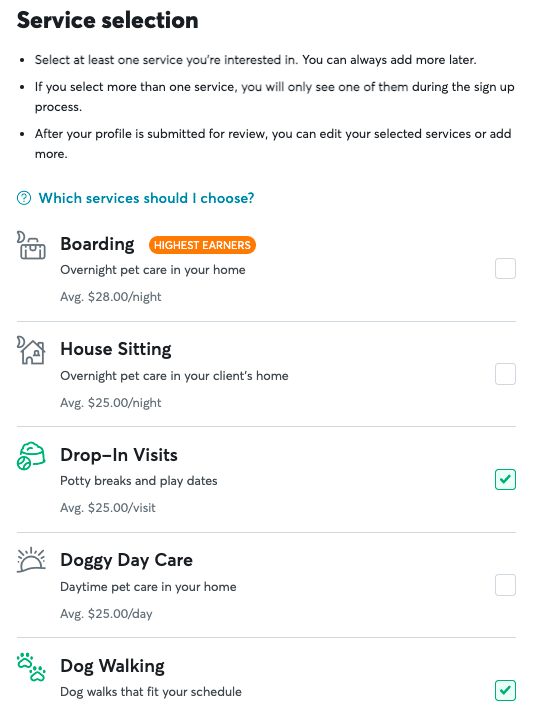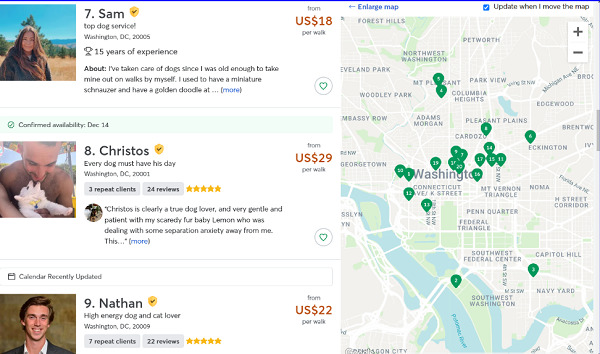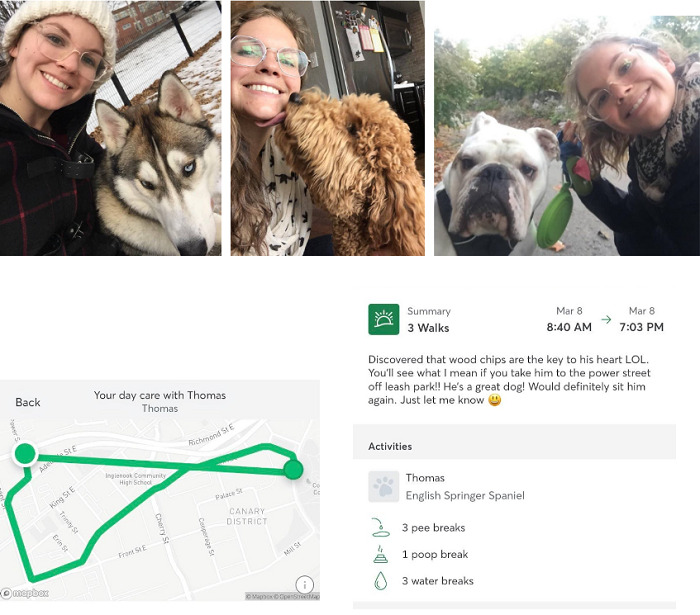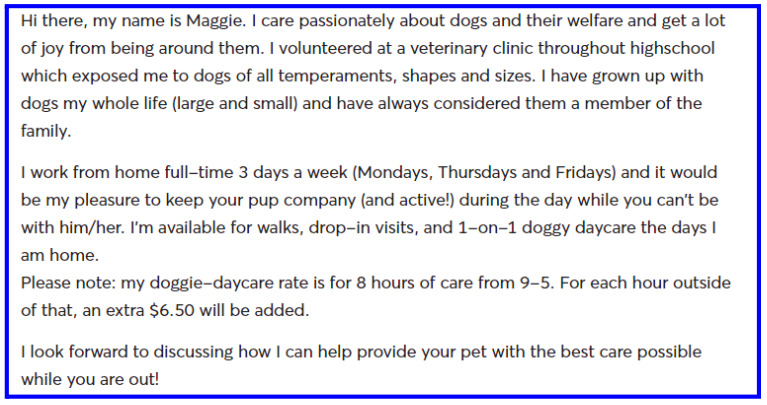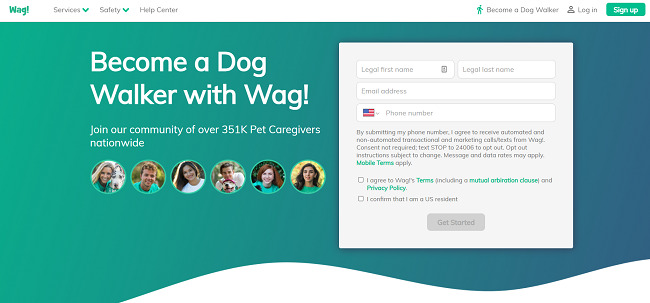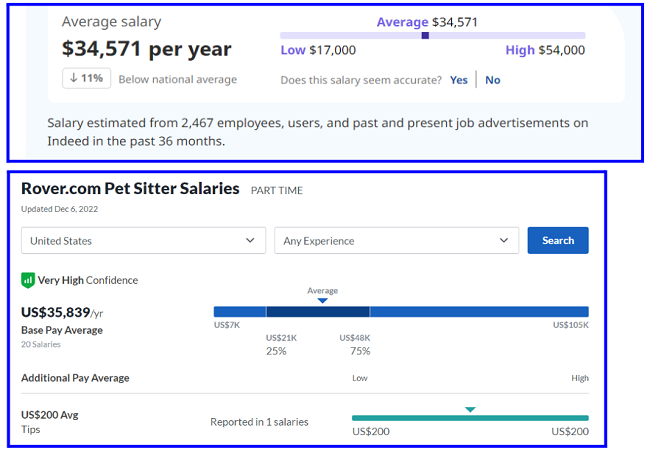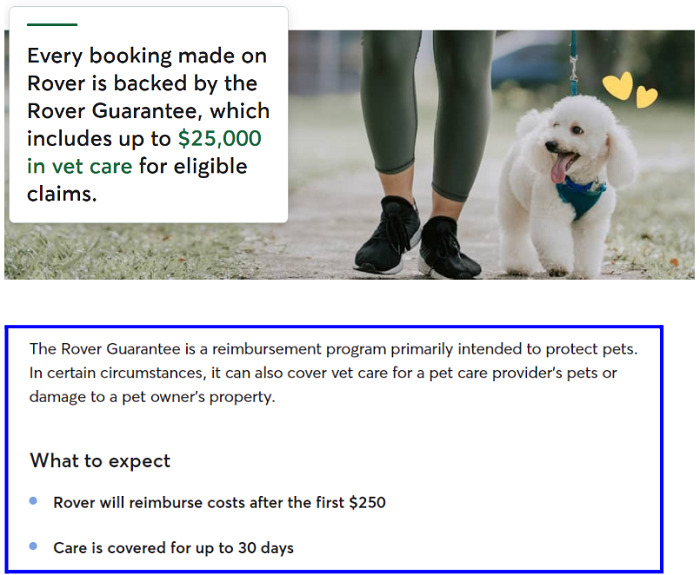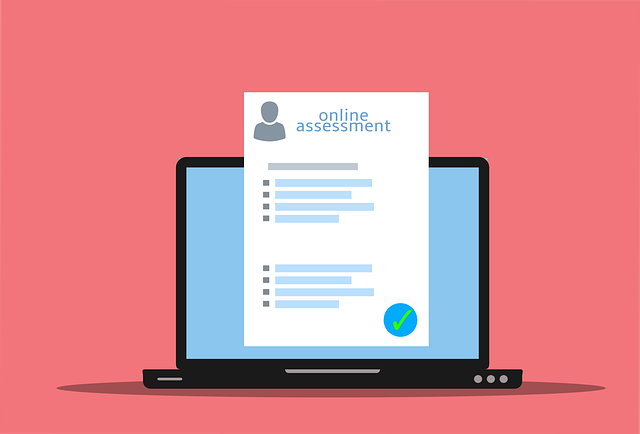Is Rover Worth It? My Experience After One Year With Rover
Rover is one of the most popular pet sitting and dog walking apps out there. And it's an effective way to make money by taking care of people's pets while enjoying a flexible schedule.
But is Rover worth it? And how much does Rover pay you to take care or walk dogs for other people?
I spent a year as a pet care provider on Rover and have truly seen the good, the bad, and the ugly of the platform. And in this Rover review, I’m sharing what I’ve learned to help you decide if Rover is worth working for.
Looking for more money-making ideas? Checkout:
- Car Insurance Saver: Save $600+ per year by using this free car insurance quote tool!
- Freecash: Another fun way to earn gift cards and free money!
Key Takeaways
- Rover is a gig platform that connects pet owners to sitters and walkers
- Rover makes it easy to earn by walking dogs, pet sitting, and providing drop-in visits
- You set your own hours, rates, and types of animals you work with
- Rover pays about $15 to $20 per hour on average but depends on your market
- Finding clients takes time but can scale into a serious side hustle
Is Rover Worth It?
Rover is worth it if you enjoy spending time with animals and want a flexible, fulfilling side hustle that you can customize to fit your lifestyle. Hourly pay is also high, especially for walking and boarding services.
The 20% Rover takes from your earnings is a bit high. However, Rover lets you customize the services you offer to match your interests and lifestyle. And it's a fun side hustle if you like working with animals.
Personally, offering Doggie Daycare while working my full-time job from home was the most worth it. Owners would drop off and pick up their pets, so I didn’t have to waste time or money traveling. I got to enjoy the company of a furry companion and ‘forced breaks’ from work (walks) which helped my stress levels.
I found boarding (overnight stays) to be the least worth it. Pets would get homesick at night and keep us awake. If you decide to try boarding, ask where the pet is used to sleeping. If it’s in bed with the owner, prepare to share your bed!
What Is Rover & What Does It Offer?
Rover is a gig platform that connects dog and cat owners in neighborhoods across the US, Canada, the UK, and Europe with trusted local sitters and walkers. The company began in Seattle in 2011. Since then, it's racked up over 40 million bookings to date.
Rover also simplifies the entire pet sitting and walking process.
Pet owners request your services through the app and then rate their experience afterwards, which builds credibility on your profile and lands you higher in the search ranks for your next booking. As a Rover sitter or walker, you also get paid directly through the app, so everything is managed for you.
Dogs are the most popular animal you can work with on Rover. But pet owners can also ask for help with cats, birds, reptiles, and other pets.
Overall, Rover is reputable, easy to use, and has safety protocols that protect pet owners and care providers.
How Does Rover Work?
To become a Rover walker and sitter, you have to be 18 or older. You also pay a $25 fee for a background check and profile review.
Having previous pet care experience also holds, even if that means having a dog as a pet yourself. But really, as long as you have a genuine love for dogs, strong communication skills, and a tolerance for the unexpected, just about anyone can make money with Rover.
Here's the process of how you sign up for Rover and begin making money:
1. Sign Up
Getting started with Rover is fairly straightforward, and you create a profile with your email or Facebook account.
From there, you have to complete your profile, complete basic online training, and file for a background check. This takes a bit of time, but it's necessary to learn how the platform works.
I can attest that the informational videos and quizzes are actually quite helpful in preparing you for scenarios you’ll likely encounter.
2. Complete Your Profile
Once you sign up for Rover, you can start creating your profile to share a little about yourself and the services you offer to potential clients in your area.
When creating your profile, you enter the types of pet services you're offering, like boarding or dog walking. You can choose as many or as few as you’d like, and can change this later:
Rover provides some average pay data for each service which can help you increase your rates. And it also lets you enter the types and sizes of animals that you're comfortable working with.
This is an excellent feature since you don't have to work with very large dogs if you're not comfortable doing so.
Next, you specify your geographical service area, rates, and the days and times during the week you’re available.
Before creating your own profile, I suggest checking out profiles of fellow walkers and sitters in your area. Go to www.Rover.com and enter information as if you were a pet owner seeking services. You find a map like the one below showing local walkers and sitters near you.
Scoping out the competition helps provide inspiration for your own bio and photos, and will help you price yourself competitively.
TIP: If you’re in an urban setting, narrow your service area to within 0.5 – 1 mile (walking distance) of your home so you don't waste too much time and money traveling.
If you provide daycare, you can also specify the details of your home, like if you have a fenced yard or any other pets in the home.
3. Find Dog Walking & Sitting Clients
Once your profile is approved, clients reach out through your Rover inbox to ask questions or book your services.
Having the app on your phone helps you reply to requests quickly, and helps you rank high in Rover’s search results. And it's also important to write an eye-catching Rover headline that makes you seem friendly and responsible so pet owners want to work with you.
Rover actually tracks ‘performance scores’ that influence your ranking. Here are the top ways to improve your rank:
- Response Rate: Respond to every request in a timely manner, even if you’re unable to accept the request. Your response rate and time appear on your public profile.
- Booking Rate: Try to accept most booking requests, especially early on, unless you're not comfortable working with the dog for some reason.
- Keep Your Calendar Updated: Log in every few days to reconfirm your availability. If you can work upcoming holidays, Rover puts a special badge on your profile.
- Get A High Review Rate: Encourage clients to leave reviews (ideally 5 star!) The more positive reviews you have, the higher you rank.
- Book Repeat Clients: Rover calculates a ‘repeat score’ tracking how many clients book with you repeatedly. And repeat clients help you make quick money if you have a regular walking or sitting schedule with them.
TIP: To encourage repeat clients, send cute selfies of you and the pet during your visit, and provide fun details in the ‘Rover card’.
4. Get Paid
Rover sends payments to you two days after completing a service. You can receive payments through:
- Direct deposit
- PayPal money
- Check
How Much Does Rover Pay?
Rover pay also varies depending on the type of service you offer and for how long. But on average, expect to earn about $15 to $20 per hour with Rover walking and $25 to $40 a night for boarding.
You set your own hourly rates on Rover, but the app suggests a rate based on other Rover sitters and walkers in your area. Some average rates you might charge by working with Rover include:
- Dog Walk: $20 per walk or $30 for an hour-long walk.
- Drop-In Visit: $25 per visit.
- Daycare: $25 per day.
- Boarding: $28 per night.
- House Sitting: $25 per night.
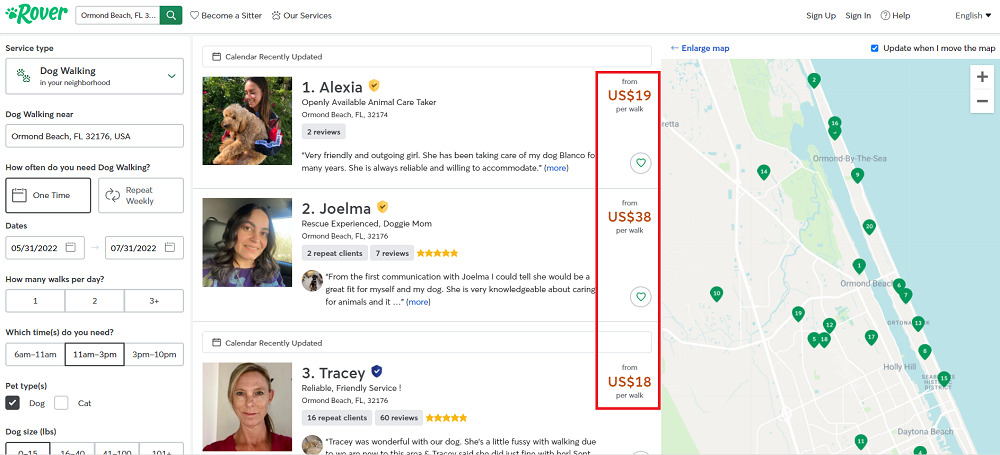
Again, your market can influence how much you make with Rover. And it's a good idea to check other profiles in your area to see what most people are charging for different services.
And remember: these are average Rover rates you might charge. But Rover still takes a platform fee, which I'll explain below.
TIP: For daycare and boarding, charge at least $30 – $35, especially if you have no other pets in your home since this is highly sought-after.
For daycare, charge clients extra for each hour outside of the 9:00am – 5:00pm timeframe. I told clients that each additional hour costs $6.50
How Much Does Rover Take?
Rover takes 20% of your earnings as a platform fee. For example, if you charge $20 for a walk, your net pay is $16 after Rover takes its fees.
This is a fairly steep fee, but Rover lets you manage your entire booking and client relationship process online. It also handles payments and provides insurance, which I'll explain below.
My Personal Experience With Rover
During my year on Rover, I experienced my fair share of crazy situations. And I believe that the most important quality in a walker/sitter is a high tolerance for unpredictable situations.
While my positive experiences FAR outway the negative, be prepared to deal with the occasional ‘mishap’.
I can’t stress enough the importance of asking questions up front before you care for a dog. This is why Rover recommends a “Meet and Greet” before your first booking with a pet.
It’s important to understand any unique behavioral issues or aversions the dog may have. Here are some personal tales to help illustrate why:
- Aggression: A rescue dog (shepherd mix) I used to walk would get REALLY nervous when I entered the apartment. She would snarl and growl until I slowly approached the crate and proved to her that I was a ‘safe person’. On her leash, any time we’d encounter a male, she would intensely lunge, growl and bark.
- Leash Mishaps: While walking two dogs, one slipped out of their leash. Out of desperation, I asked a responsible looking bystander to hold one dog while I frantically chased and eventually secured the other one. It’s not ideal to ask a stranger to hold onto a dog you’re responsible for, but desperate times called for desperate measures.
- Accidents and Destruction: One dog pooped on my balcony, another one shredded my plant while I stepped out for 5 minutes, and a couple peed on my rug. But this is part of the job when you work with pets.
You can make great money with Rover, and I like that it's a flexible side hustle. But be prepared for some unpredictable situations while on the job!
TIP: I suggest removing nice rugs or carpets temporarily as dogs want to mark their territory. Also be careful about plants, as many are toxic to pets.
How Much Can You Make On Rover?
In a busy market, it's possible to make a few hundred dollars per month or even $1,000 or more on Rover. All you need is a few regular dog walking clients and to have occasional pet sitting gigs. In slower markets, you can likely make $100 to $500 per month with Rover.
Ultimately, how much money you make on Rover depends on how many clients you have and how much you hustle.
Some people work for rover full-time in markets like New York City and make $5,000 a month or more. But for most people, myself included, this is just a part-time hustle.
How Much Does Rover Pay Per Walk?
In my experience, Rover pays about $15 to $20 per walk. But you can earn more per walk if you walk multiple dogs at the same time. However, this requires more skill and experience, and I don't suggest doing this as a new dog walker and with new pets.
Tips For Making Money With Rover
Now that you know how Rover works and how much it pays, here are a few tips that I used to land more clients to earn more money:
- Get Testimonials: Rover facilitates testimonial requests when you’re setting up your profile. Before you have formal reviews, it helps to have friends or family vouch for your loving care of their pets. Don’t sweat it if you don’t have formal experience. I asked my colleague, our office dog’s mama, if she could share that I frequently took him out for walks and am trustworthy.
- Photos Are Important: Include several photos of yourself with different dogs and cats, showing your range of experience. It may sound obvious, but make sure you’re smiling.
- Create A Catchy Tagline: Showcase your enthusiasm and highlight any unique skills or qualifications you have. Get creative, but keep it professional. Something like “I’ll treat your dog like family” is a perfect example.
- Include Past Experience: If you’ve dealt with dogs of varying temperaments, shapes and sizes, specific that!
You can see my Rover profile above for an example. I mention my past experience in a vet clinic, growing up with dogs, and my availability.
Pros & Cons
Pros:
- Get paid to spend time with animals
- Rover lets you set your own prices, schedule, services, and areas you work
- Hourly pay is high
- Rover provides insurance coverage for pet injury
- A fun way to make money by walking
Cons:
- Rover takes 20% of your pay
- Unpredictability of animals and possible behavioral issues
- Slightly lengthy setup process
- Insurance doesn’t cover pet sitter injuries or home damage
- Travel time isn't paid
Other Rover Reviews
I tried Rover for a year, and I enjoyed how flexible this side gig is. I also love working with dogs, and offering a daycare service while I did my day job was an excellent way to make extra money.
But one of the best ways to tell if a side hustle is worth it or not is to see what other people have to say about their experiences.
This Rover walker review from YouTuber Lil Meredyth shares her experience with making money with Rover and what life on the job is like.
In her review, Meredyth shares how the Rover app works and how to find your first clients. She also shows a live dog visit and how the entire process works.
Meredyth also makes $75 over the course of five quick drop-in visits, making $15 each time. Overall, it's a nice side hustle for her, and she likes working with dogs and how fun the gig is.
Extra Reading – How To Make Money In One Hour.
The Best Rover Alternatives
Rover is one of the leading platforms for pet owners and caretakers to work together. And I enjoyed using it for a year to make extra money on the side.
That said, there are numerous Rover alternatives you can consider if you want to try other platforms or find more clients, including:
Some people also try to find their own clients with local websites like Craigslist or Facebook Marketplace.
These websites are good ways to find cash gigs in your area. However, I prefer Rover since you get free exposure and insurance coverage. And keeping your Rover ranking high helps you get even more business.
Frequently Asked Questions
Do People Tip On Rover?
Yes, people can tip on Rover once a stay or walk is complete. Rover gives pet owners the option to leave: no tip, 10%, 15%, 20%, or a custom tip up to 30%. Pet care providers keep 100% of tips.
How Much Does Rover Pay Per Month?
The amount of money you make per month on Rover depends on:
- The level of demand for pet-sitting services in your area
- How flexible your schedule is
- Whether you use the platform part-time or full-time
According to Indeed and Glassdoor, Rover pet sitters earn approximately $35,000 per year on average. This is with a low-end of $17,000 and a high-end of $54,000.
To be honest, I find these Rover salary estimates high. I think the only way people are making 35k is if they’re dog sitting and walking multiple pets at once, almost every day of the week. While doable, this can be challenging.
In reality, I think most Rover walkers and sitters can probably make about $150 to $200 per week if they complete a walk or two per day plus some boarding or daycare services.
TIP: Be realistic with how much spare time you have, the challenges of caring for multiple animals at once, and the time it takes to build up your clientele.
Do I Pay Taxes On Rover?
On Rover, you are an independent contractor, so the platform doesn’t withdraw taxes. This means you have to accurately track and report your income, and it might be worth consulting a tax professional if you have questions.
Gigs like DoorDash and Instacart are the exact same. Whenever you work in the gig economy, make sure you factor in taxes into your earnings!
Extra Reading – How To DoorDash For The First Time.
Does Rover Provide Insurance?
Yes, Rover provides an insurance policy called ‘The Rover Guarantee” for its walkers and sitters. This guarantee provides up to $25,000 in vet care coverage for eligible expenses. It can also cover damage to a pet owner's property.
I consider one of the biggest benefits versus going out on your own.
After doing some research, I found that it would cost me over $1000/year to get my own insurance. While Rover’s insurance isn’t perfect, it is free and offers peace of mind that if an animal is injured on your watch, you won’t be responsible for the vet bills.
Unfortunately Rover’s insurance doesn't cover:
- Damages to sitter’s home
- Injury to sitters and walkers
- Injuries to sitter/walker’s family members/roommates
How Much Does Rover Pay For Dog Sitting?
You set your own rates for dog sitting, but on average Rover dog sitters have a net take home pay of $20/day per dog.
How Much Does Rover Take Out Of Your Pay?
Rover takes 20% of each service. It doesn't pay for time and expenses to travel to dog walking, drop-ins, or house sitting.
Does Rover Require A Background Check?
Yes, Rover requires a background check for all walkers and sitters. It also costs $25 to complete the background check.
When Does Rover Pay You?
If you opt for direct payments to your bank account, you receive payment two days after you’ve completed a service.
Extra Reading – The Best Driving Apps That Pay.
Final Thoughts
I hope this Rover review provides an overview of how the platform works, how much it pays, and how to decide if Rover is worth it or not.
In my opinion, Rover is a reputable, legitimate platform that can help you build a clientele and market your services as a pet walker/sitter in the gig economy.
While the 20% cut they take is a little steep, the insurance coverage they provide is well worth it. And if you can offer services that jive with your lifestyle and schedule, this could be a rewarding income-earning opportunity.
Plus, making $20 a day with a walk or making $50 to $100 in a weekend of sitting adds up over time. When you add in the benefit of working with fun pets, there are plenty of selling points for this side hustle.
Looking For More Ways To Make Extra Money? Checkout:
- How To Make $100 A Day Guaranteed.
- The Best Weekend Side Hustle Ideas.
- The Best Jobs You Can Do From Your Phone.
Rover Review
Name: Rover
Description: Rover is a gig app that connects pet owners who need help with walkers and sitters in their area. It's a flexible side hustle that's perfect if you enjoy working with dogs and other pets.
Operating System: Android, iOS
Application Category: Gig Apps
Author: Maggie Twidale
-
Earning Potential
-
Hourly Pay
-
Flexibility
-
Getting Paid
-
Ease-Of-Use
-
Safety



